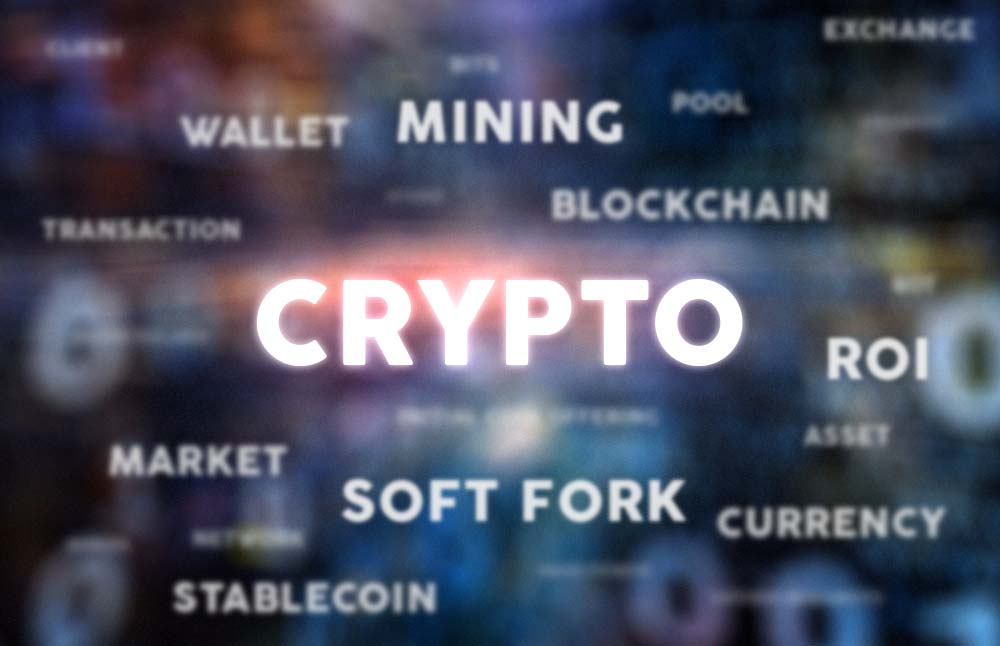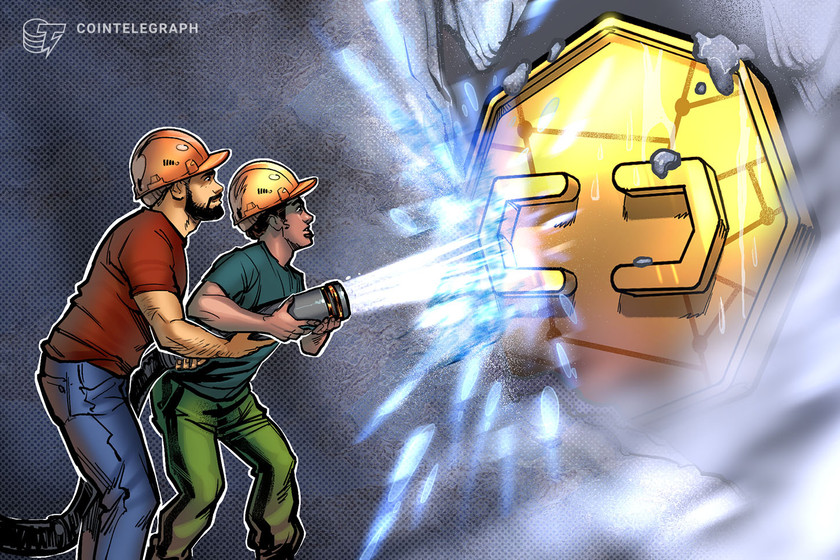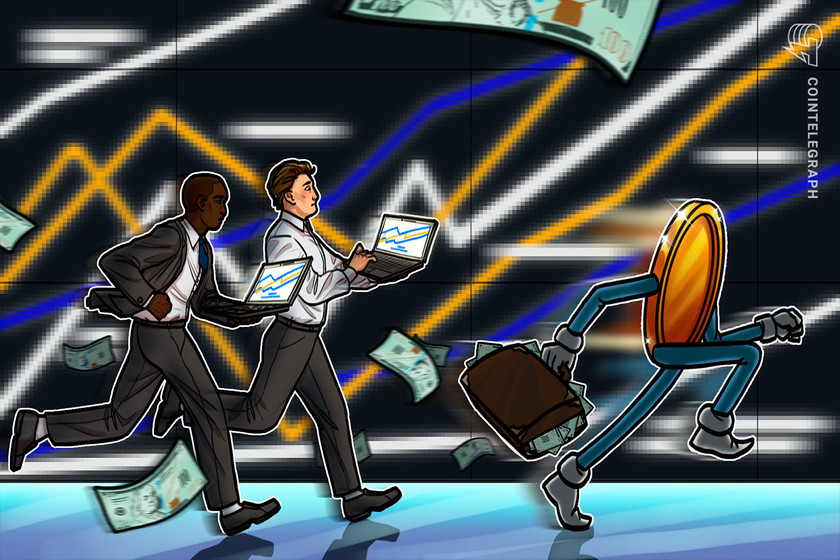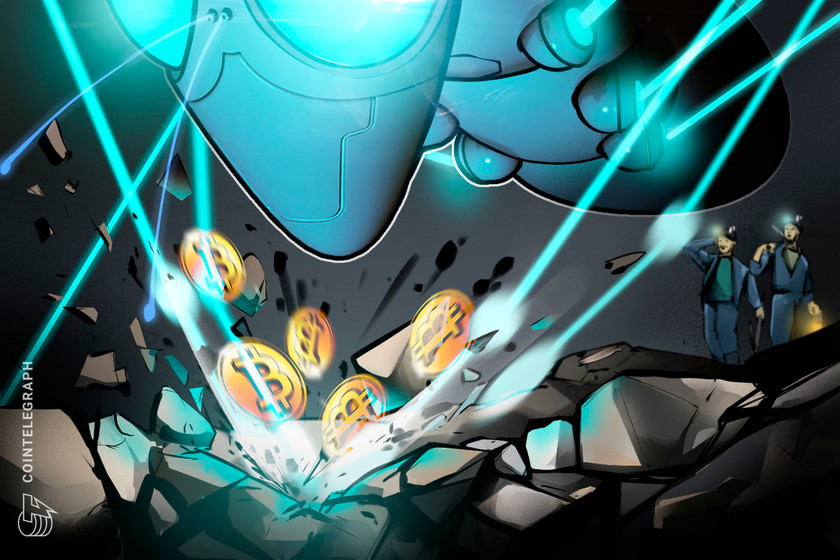GMX and dYdX go head-to-head for the top decentralized derivatives position

Decentralized derivatives platforms GMX and dYdX battle for the top DEX spot, with each planning significant improvements for this year.
The top two decentralized derivatives platforms, dYdX and GMX, are head-to-head around liquidity and trading volumes.
The perpetual swap daily trading volume on dYdX ranged between $340 million and $2.6 billion in March, per CoinGecko data. In comparison, GMX did less than $500 million in daily trading volumes.
The open interest (OI) volume, which measures the number of contracts traders hold on both exchanges, is closer than trading volumes. CoinGecko reported that GMX’s OI has ranged between $170 million and $200 million since March 2023 on Arbitrum alone. At the same time, dYdX’s OI volumes have stayed between $330 million an $260 million.
Notably, the ratio between trading and OI volume on dYdX is higher than GMX. The inflation of trading volumes on dYdX can be explained by the DYDX token incentive to boost trading volumes. A report from IOSG ventures noted:
“In cases where incentives are explicitly targeted at trading activity, like with dYdX, it remains difficult to determine the extent to which the trading volume would exist without such rewards.”
On the other hand, GMX’s model of pitching liquidity providers in GLP tokenholders against traders has fared in facilitating zero-slippage trading. The incentivization of liquidity through the GMX token led to a more organic rise in GMX’s trading volume.
In terms of total locked value, GMX outpaces dYdX by a factor of 1.7, with $627 million deposited in GMX versus dYdX’s $356 million, per DefiLlama.
Comparing the trading and OI volume and liquidity, there’s no clear winner between the two. Thus, the competition for the top spot in decentralized derivatives trading is up for contention.
Improvements lined up dYdX and GMX
Both exchanges have advantages and shortcomings, with updates lined up for this year to improve their product lines.
The IOSG report noted that due to the significant trading incentives, dYdX has a large discrepancy of $750 million between fees earned and incentives, “indicating that the project has paid more incentives than earned in fees.”
However, the dYdX team has taken steps to reduce the token inflation over the past six months from 5.8 million tokens per month to 2.7 million in the same period.
The dYdX team aims to accrue “real value” for the DYDX token by directing trading fees and its layer-1 blockchain transaction fee toward holders. It announced a plan to launch a Cosmos-based independent layer-1 chain in 2022.
Recently, the team conducted a successful private testnet launch of the dYdX chain, which is set to launch in September.
While GMX has attained more organic trading volumes than dYdX, it offers limited trading pairs of only four cryptocurrencies: Bitcoin (BTC), Ether (ETH), Chainlink’s LINK (LINK) and Uniswap’s UNI (UNI). At the same time, dYdX offers trading in 37 cryptocurrencies.
The GMX team is working on adding a synthetic smart contract that will enable support for multiple assets on the perpetual trading platform.
GMX also benefits from its decision to deploy on Arbitrum because of ample liquidity and integrations with other decentralized finance (DeFi) platforms. For instance, GMX has established partnerships with Camelot, Olympus DAO, Umami Finance and others within the Aribtrum ecosystem to boost liquidity and usage.
On the other hand, dYdX’s decision to leave the Ethereum ecosystem for an independent layer-1 blockchain may fare well concerning speed and performance. However, it could experience the adverse impact of liquidity isolation.
Technical outlook and on-chain flow
DYDX’s price has surged 134% since the start of 2023, compared with 90% year-to-date gains in GMX.
Data from Nansen shows that “smart money” wallets have accumulated DYDX fervently since the start of 2023. The analytics firm flags smart money accounts to identify prolific and active traders.
Related: 3 ways crypto derivatives could evolve and impact the market in 2023
Technically, DYDX faces resistance from the November 2022 peak levels of around $2.70. If buyers are successful in breaking out above this level, the token can target 2022 breakdown levels around $6.96. In case of a downturn, support lies around $1.77.

Crypto analytics firm Lookonchain reported whale accumulation of GMX around March 28, totaling $5 million. The platform reported another $4.9 million sale on April 5 by another whale account, which is encouraging for buyers.
GMX reached new all-time highs of $85.95 in March 2023. With the 2022 peak around $58.91 as support, the token could move higher if it breaks above the $85 level.

While it’s unclear which platform out of dYdX and GMX will take the eventual lead in decentralized derivatives trading, the developments planned for these platforms appear positive for both. The tokenomics and market structure of their native tokens are both showing bullish signs.
The views, thoughts and opinions expressed here are the authors’ alone and do not necessarily reflect or represent the views and opinions of Cointelegraph.
This article does not contain investment advice or recommendations. Every investment and trading move involves risk, and readers should conduct their own research when making a decision.






